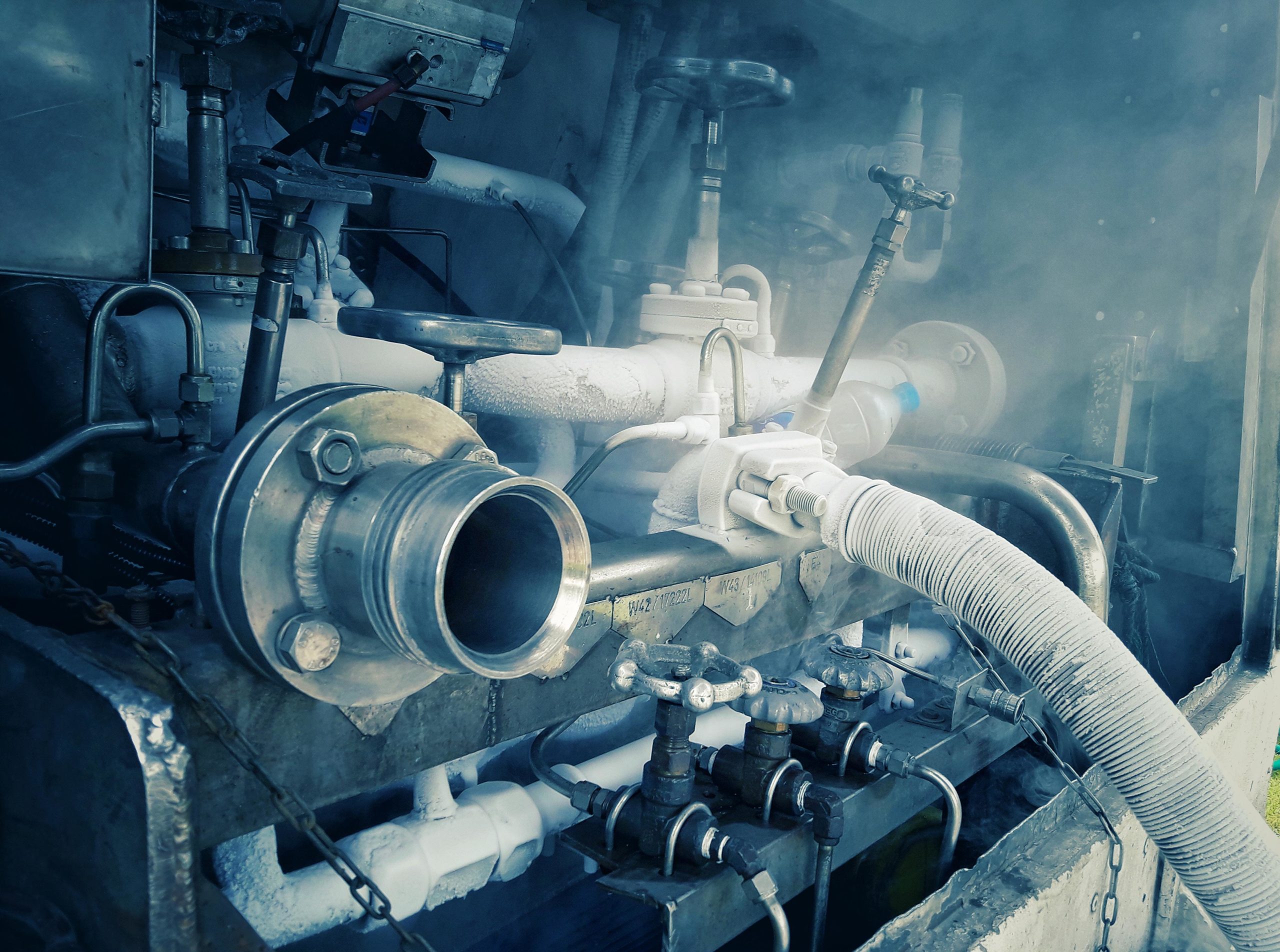In the world of advanced sealing, few materials can match the resilience and versatility of PTFE and PEEK. When systems operate at temperatures below –200 °C or handle chemicals capable of dissolving most polymers, seal failure is not an inconvenience—it’s a critical risk. In such environments, the combination of PTFE and PEEK enable reliable sealing performance that remains stable, predictable, and long-lived.
This blog post focuses on key features of PTFE and PEEK that make their sealing solutions a good choice for extreme media and reviews applications where these materials excel.
The Challenge of Sealing Across Opposing Extremes
Designing a seal for cryogenic and/or corrosive service is an exercise in contradiction. At extremely low temperatures, most polymers become brittle and lose their ability to conform to mating surfaces. Under high heat or chemical exposure, others swell, creep, or break down at the molecular level. Even metals typically lack the elasticity or chemical resistance required for tight dynamic sealing.
True reliability comes from materials that can maintain their properties across this spectrum—retaining flexibility near absolute zero while withstanding oxidative and acidic environments at elevated temperatures. This is precisely where PTFE and PEEK excel.
PTFE: The Chemical Inertness Benchmark
Polytetrafluoroethylene (PTFE) serves ast the industry standard for chemical resistance and thermal stability. With its fully fluorinated carbon chain forms, PTFE is one of the most inert polymer molecular structures known. It is impervious to nearly all solvents, acids, and bases. Its operating range is from –250 °C to +260 °C, and PTFE is able to maintain low friction and minimal surface adhesion even in the harshest conditions.
In dynamic seals, its extremely low friction and self-lubrication allows results in lower torque, reduced stick-slip, and minimal wear against counterfaces. In addition, cryogenic engineers value PTFE’s ability to retain elasticity at temperatures that render most elastomers and many polymers extremely brittle. In chemical processing, it functions as a barrier material, protecting metallic components from corrosive attack.
However, unfilled PTFE has its limits. Under continuous load, it can creep or cold-flow, gradually losing preload. Engineers address this with fillers such as glass, graphite, carbon, or bronze, with each improving compressive strength and wear resistance. These modifications allow PTFE and PEEK enable reliable sealing designs to meet performance expectations in applications ranging from cryogenic valves to aggressive chemical reactors.
PEEK: Structural Integrity Under Pressure
Polyether ether ketone (PEEK) seems to complement the properties PTFE by offering exceptional mechanical strength and outstanding dimensional stability. Where PTFE provides chemical inertness, PEEK contributes structural endurance. Its semi-crystalline molecular structure gives it tensile strengths exceeding 90 MPa and excellent creep resistance maintained even at continuous temperatures approaching 250 °C.
In sealing systems, PEEK often serves as a backup ring, retaining element, or structural carrier for softer sealing materials. PEEK is excellent at resisting extrusion under high differential pressure and maintains shape when thermal cycling could otherwise deform conventional polymers. Chemically, PEEK withstands regular exposure to hydrocarbons, steam, and strong acids, thus making it indispensable in oil-and-gas and chemical processing environments.
Composite grades filled with carbon fiber, graphite, or PTFE further optimize tribological performance. These blends combine the toughness of PEEK with the low friction and self-lubrication of PTFE, thus ensuring smoother operation dynamic sealing solutions where where friction is critical.
PTFE and PEEK Performance Across Extreme Temperatures and Corrosive Media
Engineers often use PTFE sealing solutions for operations that involve components, such as cryogenic hydrogen and oxygen valves, where lubrication must persist without freezing or outgassing. On the other hand, PEEK components dominate in high-temperature pumps and compressors exposed to sour gases, acids, or amine-laden fluids.
Even in vacuum environments, PTFE’s extremely low outgassing helpts to ensure critical contamination-free operation. PEEK’s dimensional stability supports precise alignment and positioning even over extreme temperature ranges. Such mechaniacl properties can translate into longer service life, reduced maintenance cycles, and measurable operational cost savings, all of which are outcomes every engineer values.
Conclusion: Material Science at the Edge of Performance
When the operating conditions involve everything form cryogenic cold to corrosive heat, only a select group of polymers can deliver consistent performance: PTFE and PEEK. One offers unmatched chemical inertness and low friction; the other, exceptional mechanical integrity and pressure resistance. Working independently or in tandem, PTFE and PEEK enable reliable sealing in systems where failure is simply not an option.
For engineers designing valves, compressors, or actuators expected to survive the extremes, these two polymers represent more than material choices—they represent confidence. Through advanced formulations, precision machining, and innovative hybrid geometries, the limits of polymer sealing continue to expand.



